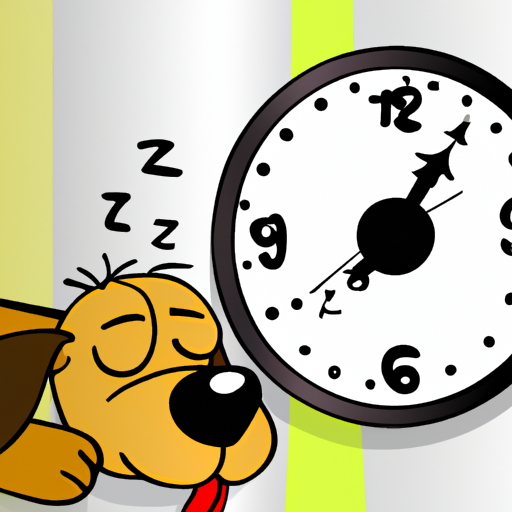As a dedicated caregiver, you might have wondered about the sleep patterns of your beloved four-legged friend. Observing your dog’s sleep habits can offer valuable insights into their health and well-being. So let’s dive deep into understanding how many hours a day dogs sleep, what factors influence their sleep, how their sleep pattern differs from humans, and what to do if your dog’s sleep pattern changes.
Understanding a Dog’s Sleep Pattern
Just like humans, dogs have their unique sleep patterns. You might have noticed that your dog dozes off frequently, but for shorter durations. Unlike humans who generally sleep for a continuous stretch, dogs have polyphasic sleep patterns, meaning they have multiple sleep-wake cycles within a 24-hour period.
According to several studies, an average adult dog sleeps between 12 to 14 hours a day. However, this can vary depending on several factors including:
- Age: Puppies and older dogs tend to sleep more, sometimes up to 18-20 hours a day.
- Activity Level: Active dogs like working breeds may sleep less while sedentary dogs tend to sleep more.
- Health: Dogs with health issues might sleep more than usual.
How Dog’s Sleep Differs from Human Sleep
You’ve probably observed your dog twitching, wagging its tail, or even barking while asleep. This is because, like humans, dogs also experience REM (Rapid Eye Movement) sleep, the stage associated with dreaming.
| Human Sleep | Dog Sleep |
|---|---|
| 25% REM sleep | 10% REM sleep |
| Sleep in one long stretch | Multiple short sleep periods |
| 7-9 hours average sleep time | 12-14 hours average sleep time |
How to Support Your Dog’s Sleep
Now that you understand your dog’s sleep patterns, here are some tips on how you can support their sleep:
- Establish a routine: Dogs thrive on routine. Try to keep a consistent schedule for meals, walks, playtime, and bedtime.
- Provide a comfortable sleeping environment: Ensure your dog has a quiet, comfortable place to sleep. Consider investing in a good quality dog bed.
- Regular Exercise: Regular physical activity helps your dog expend energy which promotes better sleep.
- Balanced diet: A healthy diet contributes to better sleep. Consult your vet for the best dietary options for your dog.
Signs of Sleep Pattern Changes and Their Implications
Changes in your dog’s sleep pattern could be a signal to underlying health issues. If your dog is sleeping more than usual, it could be a sign of depression, diabetes, hypothyroidism, or other medical conditions. On the other hand, if your dog is having difficulty sleeping, it could indicate pain or discomfort. Always consult with your vet if you notice any drastic changes in your dog’s sleep patterns.
Frequently Asked Questions
Q: Do dogs dream during sleep?
Yes, dogs do dream during their sleep, especially during the REM stage.
Q: Is it normal for my dog to sleep all day?
While dogs do sleep a lot more than humans, excessive sleep could be a sign of an underlying health issue.
Q: How can I tell if my dog is not getting enough sleep?
If your dog is not getting enough sleep, they might show signs of irritability, lack of focus, and decreased activity levels.
Q: Can I change my dog’s sleep schedule?
Yes, you can gradually adjust your dog’s sleep schedule but sudden changes might cause stress.
Remember, understanding your dog’s sleep patterns is a crucial aspect of their overall wellbeing. Observing their sleep habits and responding to any changes can help ensure a happy, healthy life for your furry friend.



